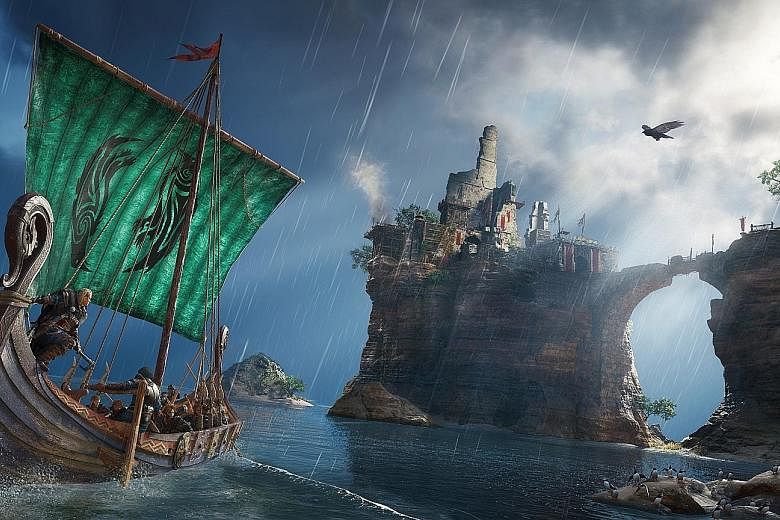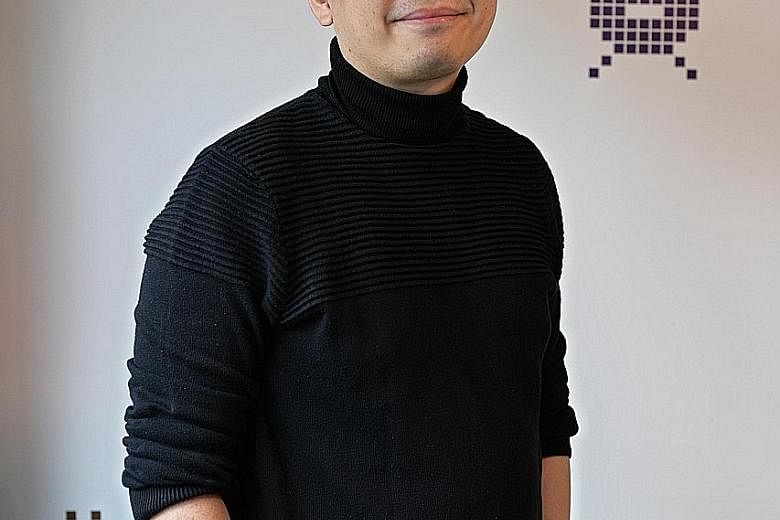The circuit breaker started at the worst possible time for Ubisoft Singapore, the local arm of French multinational video game developer Ubisoft.
The company was working with 14 other studios around the world on Assassin's Creed Valhalla - a game with a November release date.
But first, they had to finish the demo.
This gameplay demo, which would serve as a preview for a legion of expectant fans, was due in July.
Valhalla is the 12th main instalment in Ubisoft's flagship Assassin's Creed franchise, which has sold more than 150 million copies since 2007.
"The demo is basically coming up with a finished portion of the game while the rest of the game is still in progress, which meant that we had to be far ahead (of other studios working on the game) timeline-wise," said Ubisoft Singapore content director Paul Fu.
"When the circuit breaker happened, there was a lot of uncertainty over how we would transition to working from home at a very busy time."
For example, the team working on Valhalla had to figure out how to move its big collaborative brainstorming sessions online.
Such "workshops" can carry on for a few days as tens of employees from different departments discuss what is needed from each of them to move the game forward in a certain direction.
The size of the game world, for instance, is a decision that requires the input of artists, animators, gameplay designers, audio engineers and writers.
"Surprisingly, doing workshops online on Microsoft Teams (a video-conferencing platform) worked out pretty well for us," said Mr Fu.
"But there have also been a couple of times when I was giving a presentation and the Internet just gave way, which was quite stressful."
Some employees were also affected more than others by network lag and latency issues when working remotely, and had to get special permission to go back to the office.
These included 3D programmers who need to see the graphics they are working on in real time.
Despite these challenges, the studio still ended up meeting its July deadline for the demo.
And in a year which has seen other major game titles such as CD Projekt Red's Cyberpunk 2077 get delayed repeatedly, Ubisoft managed to move Valhalla's launch date forward by a week to last Tuesday.
While there was significant disruption internally during the circuit breaker period, the Ubisoft Singapore team was able to continue collaborating smoothly with the overseas studios.
"There wasn't much change, actually, with working with the overseas guys," Mr Fu said.
"We usually have weekly calls with the studios in Montreal, Sofia and Chengdu, sometimes more often, depending on the department."
The staff at each studio were also given the autonomy to decide for themselves, following a broad direction, what goes into the portions of the game for which they are responsible.
Ubisoft Singapore, for example, was responsible for building five in-game areas as well as the naval feature, which gives players the ability to sail on longships.
Mr Fu said: "The team in Singapore could decide in detail what are the quests that happen (in the five areas), the points of interest and so on.
"And if you're seeking a pro tip: Players will be able to pet cats and dogs in the game. Some of them were placed by us!"



